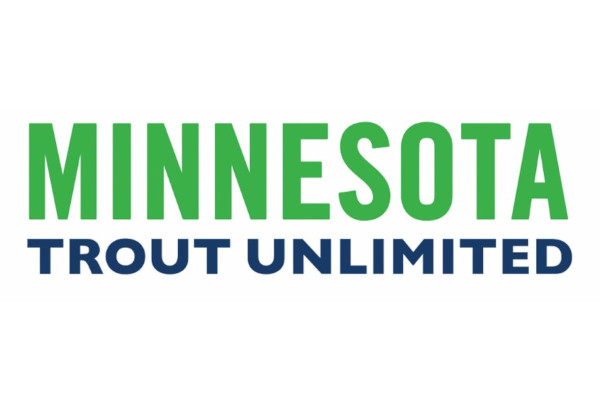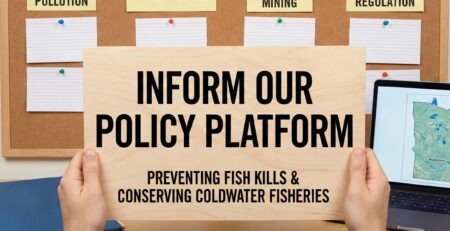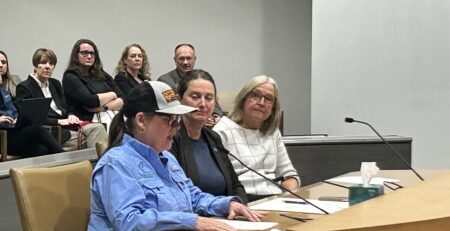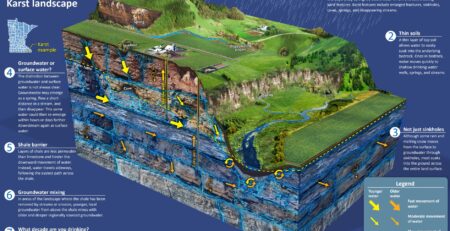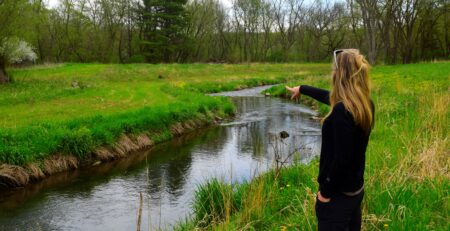May 14 Legislative Update – with one week to end of session
The MN Legislature session ends in one week. It has been a strange session with few bills passed and instead a monster “omnibus omnibus” bill which plods forward. It contains environmental policy provisions. Since the Senate and House versions of this bill differ, the bill is in a conference committee to resolve differences. Here is a link to the side by side comparison of the environmental provisions of the bills: https://www.revisor.mn.gov/side_by_sides/sbs_document.php/sbs_S3656arts13-15.pdf?id=2437160
MNTU continues working with many partners to try to getting several of the worst provisions removed, including:
- Groundwater Sustainability
Groundwater is the lifeblood of our trout streams, keeping them cool in the summer and “warm” enough in the winter. Applications for DNR groundwater appropriation permits allowing pumping of huge volumes for irrigation have soared in the past 10 years and use is exceeding sustainability thresholds in some areas. Some of these aquifers support valuable fisheries, such as the Straight River. Groundwater is a public resource which landowners may make “reasonable use” of. The amount which constitutes a reasonable use amount is set by statute and amounts above this require a permit from DNR. State law requires DNR to permit only amounts which are sustainable and which do not deplete the aquifer or negatively impacts connected aquatic systems such as trout streams.
The bad policy provisions are found only in the House version of the bill:
- Require DNR, rather than the applicant, to pay for a test well needed to determine if the high volume sought is sustainable (Art. 4, section 39 – pages R57-R58, lines 66.27 to 66.29)
- Prohibit DNR from imposing conditions or requiring testing when a landowner transfers his/her permit to a new owner, even where the old permitted amount is no longer sustainable (Art. 4, section 40 – page R57, lines 66.18 to 66.26)
- Require DNR demonstrate that any data used to restrict water usage “supports or verifies the decision”; existing law already requires decisions based on data and DNR does share data with applicants, but this raises the bar and increases admin burden and costs (Art. 4, section 41 – page R58, lines 67.1 to 67.6)
- Require DNR to conduct expensive economic impact studies for each permit application, even though DNR has no economists on staff and the central issue – is there is or is not enough water available – is factual, not economic (Art. 4, section 41 – page R58, lines 67.7 to 67.9)
MNTU opposes these attempts to curtail sustainable use of groundwater and urges the Senate position (which contains no such provisions) be adopted.
- Blocking of Nitrogen fertilizer rule; attack on Groundwater Protection Act
Existing Minnesota law gives the state authority to protect groundwater and drinking water. It is called the Groundwater Protection Act and it was passed in 1989 with broad support from both political parties. Contamination from rising nitrate levels is impacting thousands of people and dozens of communities across the state. It is also negatively impacting trout fisheries. Because this is also a growing public health issue, the Minnesota Department of Agriculture (MDA) is proposing a Groundwater Protection Rule that will help communities address rising nitrate levels. Sadly the Legislature is poised to block the rule and MDA’s existing rule making authority. A description of the modest rule and other background information can be found on MNTU’s April 16 blog via this link: https://mntu.org/2018/04/groundwater-2/
The bad policy provision is in both the House and Senate language and is found on page R13 of the following document (Agriculture Article of the bill):
https://www.revisor.mn.gov/side_by_sides/sbs_document.php/sbs_jrm18-agp1.pdf?id=2437050
Governor Dayton has indicated he will veto this provision. His administration’s letters to the House and Senate and other information is posted on MNTU’s Groundwater Protection page at: https://mntu.org/groundwater-management/
- Requiring DNR to violate court order on groundwater
The DNR was sued for permitting the withdrawal of too much groundwater near White Bear Lake. After a 20 day trial, with much expert testimony, the judge determined that the DNR had violated numerous statutes and rules by allowing unsustainable groundwater extractions, and had violated its fiduciary duty to protect the public’s right to use White Bear Lake’s water and lakebed. In this 2017 court order the judge imposed requirements and limitations on the DNR to modify groundwater extractions within a 5-mile radius of White Bear Lake.
Several bills direct the DNR to ignore the court’s order and circumvent the protections ordered. This will result in the continued unsustainable depletion of groundwater to the detriment of White Bear Lake. This sets a horrible precedent – requiring the DNR to ignore a court order and continue allowing excessive groundwater pumping. The Legislature should respect the legal process and let it reaches it t conclusion.
This bad policy provision is in both the House and Senate language and is found on page R108, lines 106.8 to 106.32 of the following document:
https://www.revisor.mn.gov/side_by_sides/sbs_document.php/sbs_S3656arts13-15.pdf?id=2437160
Similar language is advancing in a stand-alone bill, perhaps as insurance if the omnibus bill is ultimately vetoed.
- Exempting water transfers between unconnected waterbodies from MPCA permitting
This provision would allow water from one lake or stream to be pumped into another lake or stream without a water quality permit (and compliance with water quality standards) from the MPCA. Our concern is where the source water contains aquatic invasive species. The provision was drafted to address a situation where the two water bodies were already connected, but the bill language is overly broad and would exempt two previously unconnected water bodies. This provision needs fixing!
This provision is in both the House and Senate language and is found on page R70, lines 79.12 to 79.23 of the following document:
https://www.revisor.mn.gov/side_by_sides/sbs_document.php/sbs_S3656arts13-15.pdf?id=2437160
